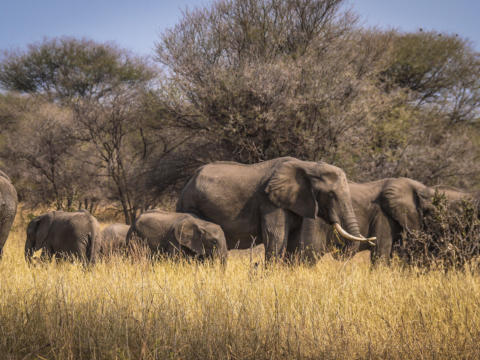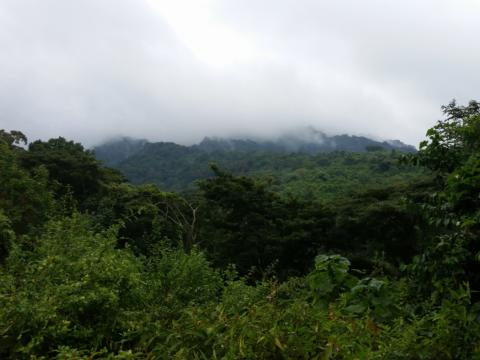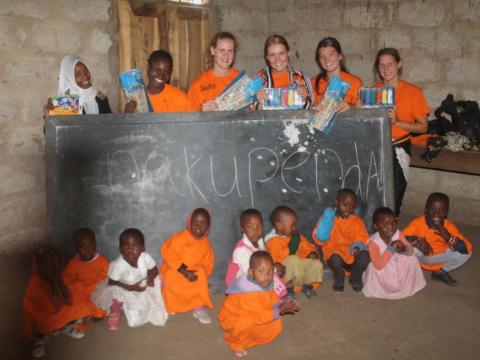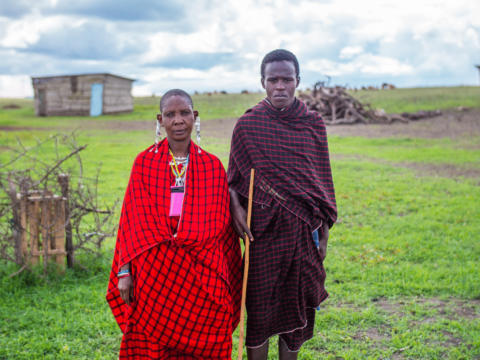Only 765€ per week!
Zanzibar Protecting Sea Turtles
Nungwi - Tanzania
Sea turtles around the world are facing real extinction even though they have been ecologically living on our planet since millions of years ago.
Be part of a sea turtle conservation project that is working towards helping sea turtles grow up in a safe environment where every year the endangered species are released into the ocean. This is where you can contribute to this project through a wide range of activities such as checking the water quality, maintenance of juvenile nets and much more!
Program Description
Background
The sea turtles are facing extinction. The Sea Turtle conservation project is working against that and is helping sea turtles to grow up in a safe environment. Every year the sea turtles are released into the ocean. The project itself needs help because it is not profitable. Participants will work in groups alongside the 28 staff working at the project and can help with their work and with the money which is paid through their stay to help the project.
Daily Routine
The work is starting as team work every morning after breakfast. The tasks can differ but every day the water of the basins have to be exchanged and the sea weed has to be collected and the sea turtles have to be cleaned. Additional maintenance works, measurements and further cleaning tasks are done on different days. Every participant will be introduced to the work and a list of tasks during the welcoming meeting after arrival. Per year, more than 150 Sea Turtles are raised by the project. There are also around 30 bigger turtles in the lagoon
There are a lot of different activities the participants will do such as:
- Water exchange for Basins and Sea Turtle Hospital
- Water Quality check
- General cleaning
- Seaweed collection in Indian Ocean
- Filling of Tube Feeders
- Cleaning of adult turtles
- Treatment of Hospital Turtles
- Lagoon Cleaning (remove leaves and plastic)
- Hatching measurements
- Juvenile measurements
- Beach cleaning
- Inspection of nets
- Maintenance of juvenile nets.
All participants will learn and undertake all different tasks.
Aims & Objectives
- Survey the endangered sea turtle population for initiative conservation efforts
- Gain knowledge and awareness on the life cycle of sea turtles
- Provide you with the opportunity to help return raised sea-turtles back into the ocean in a hands-on way
Schedule
Week 1
Sunday
- Arrival to Zanzibar and transfer to accommodation site for your full orientation program
- Explanation of your local surroundings such as ATM, convenience stores as well as the overview of your program and rules to be followed.
- Visit the historical old part of Zanzibar, Stone Town.
Monday to Friday
- In the morning, you will begin your Sea Turtle project from 0:800-14:00 where you will work with a local coordinator and engage in a wide range of conservation efforts depending on your skill level.
Saturday
- Free time to travel within Zanzibar / Tanzania and experience the beautiful landscape of this region in Africa.
Week 2
Sunday
- Free time to travel within Zanzibar / Tanzania and experience the beautiful landscape of this region in Africa.
Monday to Friday
- Continue with your Sea Turtle project from 0:800-14:00 where you will work with a local coordinator and engage in a wide range of conservation efforts depending on your skill level.
Saturday
- Transfer to ZNZ airport
Note: This schedule can be changed and/or amended depending on weather conditions, local conditions and unforeseen circumstances.
Participant Criteria & Requirements
Standard Requirements
Minimum age: –
Maximum age: –
Minimum English level: Basic
CRB required: On Signup
Passport copy required: On Arrival
Resume copy required: On Arrival
Required qualification: None
Additional Requirements
There are no further requirements.
Additional Equipment
Casual clothing: men and women should dress appropriately when away from the beach, i.e always covering shoulders and legs below the knees. Beachwear (not too skimpy) on the beach is fine.
Location
Turquoise blue, crystal clear sea, white sandy beaches, fascinating sights and lots of outdoor adventures – you can experience all this with your work in Zanzibar! Besides your project work you can explore the "Island of Spices", which has played an important role in the past. Because Zanzibar went down in history as an important hub of Arab and Asian trade relations. Besides gold, ivory, spices and wood, slaves were traded here until the 19th century.
The capital of the archipelago, Zanzibar Town, lies with its picturesque harbour directly on the water. Here the mixture of African, Arabian, Indian and European influences, characteristic for Zanzibar, becomes particularly clear. You will notice this especially in the old part of town Stone Town, which was declared a UNESCO World Heritage Site in the year 2000. Colourful merchants' houses with balconies and mango trees line the small streets and a surprise awaits you around every corner: You'll discover shops where the scent of carnations streams out and where you can buy artfully embroidered bags, African fashion and handmade jewellery.
About the Accommodation
There is a big cottage for Breakfast, lunch and dinner at the accommodation site. On the compound are other huts for the work and toilets. The participants' houses are directly on the compound. There is an office and reception and other rooms on the project compound.
Food Arrangements
Local meals that are typical of Zanzibari culture will be provided at this accommodation. Once per week all participants create together the weekly food plan.
Facilities
You will easily find a few small local stores that sell snacks, drinks and any basic supplies you might need during your stay. Nearby, there are ATM's, banks, shops, a local pharmacy, etc.
Activities & Events
No scheduled activities outside the program.
Sights & Surroundings
Northern Zanzibar
In the north of Zanzibar you have the opportunity to meet many international travellers in Nungwi and Kendwa. Nungwi is a village known for its wide palm beach of the same name, where women can relax in a western bikini or swimsuit. Close by is a boat building site, where the traditional daus are made of wood.
Southern Zanzibar
Discover the spice plantations outside the city, where turmeric and cinnamon are grown. Or visit the Jozani Forest in the south of the island. Here you can admire the rare red colobus monkeys. At Kizimkazi you can see dolphins and at Chumbe Island you can snorkel luminous fish swimming through colourful coral gardens. In the east of the island you will find the most beautiful surf spots of the island and you can plunge into the turquoise blue waves.
Transportation
From this location we do not provide free transport to other locations.
Quick Facts
Name: United Republic of Tanzania
Population: 52 million
Capital: Dodoma
Language: Swahili, English
Currency: Tanzanian Shilling (TZS)
Time zone: EAT (UTC +3)
Country Information
Tanzania is a large country in Eastern Africa within the African Great Lakes region. Parts of the country are in Southern Africa and it is bordered by Kenya and Uganda to the north; Rwanda, Burundi, and the Democratic Republic of the Congo to the west; Zambia, Malawi, and Mozambique to the south; and by the Indian Ocean to the east. It is home to Kilimanjaro, Africa's highest mountain, in its northeastern region and is considered the Safari capital of the world!
Tanzania is a presidential constitutional republic, and since 1996, its official capital city has been Dodoma, where the President's Office, the National Assembly, and some government ministries are located. Dar es Salaam, the former capital and its largest city, retains most government offices and is the country's principal port and leading commercial centre.
Climate
Climate varies greatly within Tanzania. In the highlands, temperatures range between 10 and 20°C during cold and hot seasons respectively.
The rest of the country however has temperatures rarely falling lower than 20°C. The hottest period extends between November and February (25–31°C) while its coolest period occurs between May and August (15–20°C).
Tanzania has two major rainfall regimes: one is uni-modal (October–April) and the other is bi-modal (October–December and March–May). The former is experienced in southern, central, and western parts of the country, and the latter is found in the north from Lake Victoria extending east to the coast.
Culture
Tanzania's large population is diverse, composed of several ethnic, linguistic and religious groups.
Christians and Muslims make up the large majorities, but 2% still practice Traditional African Religion.
Over 100 different languages are spoken in Tanzania, making it the most linguistically diverse country in East Africa. All four of Africa’s language families are spoken (Bantu, Cushitic, Nilotic, and Khoisan), but Swahili and English are its official languages, though Swahili is pushed officially as a unifying language, to the detriment of other minority languages, even English.
Transportation
Car
Although much of its roads are usually in poor condition, most transport in Tanzania is by road, 80% of its passenger traffic in fact. Rentals, Taxis, buses and mini buses (locally known as “dala dala”) account for the main methods of transportation.
Train
Tanzania’s railways have a spotty safety record and it is not uncommon to have passengers experience frustration with slow journeys, frequent cancellations and delays, but if you have the time – it is a unique way to travel with amazing landscapes decorating the backdrop!
Airplane
Tanzania has four international airports, along with over 100 small airports or landing strips; airport infrastructure tends to be in poor condition although there are reports of improvements in this area. Local airlines in Tanzania include Air Tanzania, Precision Air, Fastjet, Coastal Aviation, and ZanAir.





